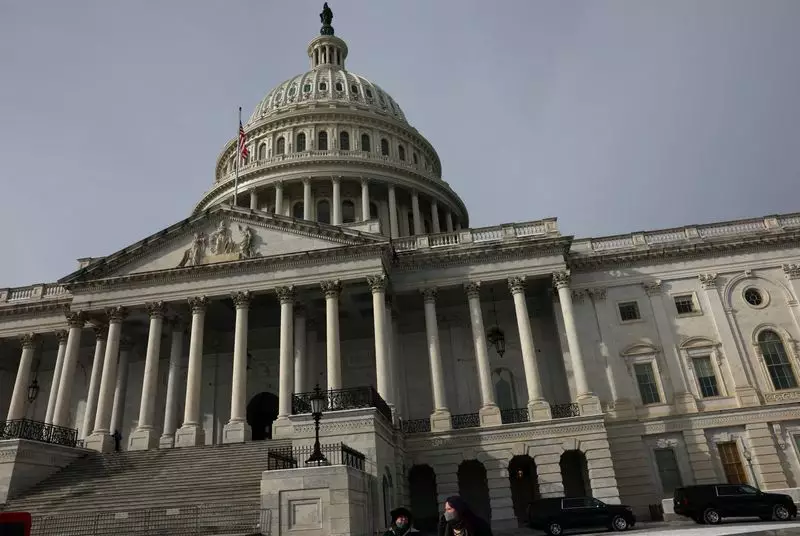The recent passing of a spending bill by the Republican-controlled U.S. House of Representatives has sparked controversy and debate among lawmakers. The bill, which funds a broad range of federal programs through the fiscal year, has faced opposition from within the Republican party itself. This article aims to provide a critical analysis of the key issues surrounding this spending bill.
One of the major points of contention within the Republican party is the level of spending proposed in the bill. Many hardline conservatives have expressed concerns that the bill does not go far enough in cutting government spending. They argue that the bill “busts” spending caps enacted last June and fails to address key Republican policy priorities. This internal division within the party has made it difficult for Speaker Mike Johnson to maintain unity and secure the necessary votes for the bill’s passage.
Despite facing opposition from within his own party, Speaker Mike Johnson was able to pass the spending bill with the support of opposition Democrats. This highlights the challenges faced by Republican leadership in maintaining party unity on key legislative issues. While some Democrats have criticized the bill for not going far enough in addressing certain spending initiatives, others have praised it for protecting important programs related to women’s health and nutrition.
The debate over the spending bill reflects broader disagreements within Congress over the appropriate level of federal spending. While some lawmakers argue that spending cuts are necessary to rein in the growing national debt, others push for increased funding for key government agencies and programs. The failure to reach a consensus on these issues has led to delays in passing full-year government funding measures, further complicating the legislative process.
The passing of this spending bill is likely to have a significant impact on future government spending and policy decisions. With Congress facing a March 22 deadline to pass remaining funding measures, lawmakers will need to find common ground on key issues such as defense, homeland security, and healthcare. The outcome of these debates will shape the direction of federal spending for the coming fiscal year and beyond.
The recent passing of a government spending bill has highlighted the challenges faced by lawmakers in reaching consensus on key fiscal issues. The internal divisions within the Republican party, combined with broader disagreements over federal spending priorities, have complicated efforts to pass comprehensive funding measures. As Congress moves forward, finding common ground on these issues will be essential to ensuring the effective functioning of the federal government.

